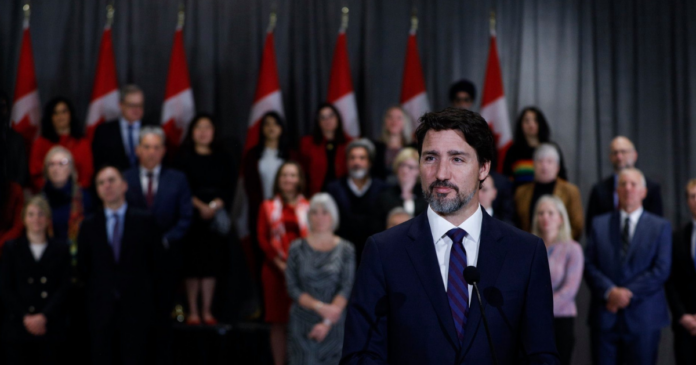The details of the Liberal’s capital gains tax have yet to be made public and many Canadians are confused and concerned with how it may affect them going forward.
Announced on April 16 as part of the Trudeau government’s 2024 federal budget, the capital gains tax increase is slated to take effect on June 25, 2024, but there is still no legislation spelling out the details.
At the same time the Trudeau government announced the capital gains tax, they also announced an excise sales tax on tobacco that took effect immediately, which is typical of any tax change announcements.
However, with the capital gains tax, the government said it wanted to give Canadians “time to plan,” and scheduled an implementation date of June 25.
“They’re being a little too cute by half,” Conservative MP Adam Chambers told True North in an interview on The Andrew Lawton Show.
“The reason the government is giving people time to plan is because it will force a lot of transactions to occur between the budget and June 25, which will trigger a lot of revenues because people will pay taxes after they dispose (of) assets.”
While there is much confusion regarding who will be affected by this, the tax change will take effect on June 25, regardless of the law, Chambers said.
“The CRA will still execute or implement this tax change on June 25 even without legislation,” said Chambers.
“This is just patently unfair for individuals to expect to arrange their affairs or sell assets with no legislation or no rules in place. It’s only a matter of proper process that they have legislation before they may choose to decide to sell assets.”
One of the reasons legislation is necessary before implementation is that it may include tax carve outs for certain individuals, something the Liberal government has hinted at, but not confirmed.
Some Canadians may sell off assets preemptively only to find out that they wouldn’t have been affected by the new capital gains tax after the legislation is brought forth. In any case, the government is poised to collect the financial windfall.
Chamber cited the “bare trusts scandal” as a previous example of this, when the CRA required a number of filings from those who had bare trusts, only to reverse the decision the day before the fillings were due.
“We found out that over 40,000 people, 43,000 individuals, filed the paperwork for the bare trusts at an average, most people paid an average of anywhere between $500 and a $1000 per filling,” recalled Chambers.
“A complete boondoggle by the government that created a tonne of additional complexity and compliance cost for taxpayers to then realize that they didn’t have to do it in the first place.”
Finance Minister Chrystia Freeland indicated that the capital gains tax legislation likely won’t be finalized or tabled before June 25, leaving Candians in the dark about what to do with their assets.
Lawton asked Chambers if his issue with the capital gains tax was primarily to do with procedure, or if he took issue with the concept of the tax increase itself.
“Will you and the Conservatives vote against that when it comes?” asked Lawton.
“It’s hard to say you’re going to vote for or against a bill you haven’t seen yet,” responded Chambers. “If they table a ways and means motion within a couple weeks before we go I think we’ll have an opportunity to go through it, but let’s think about why they are bringing in the tax increase in the first place. The reason the government needs this revenue is because the spending has just continued to grow and grow out of control.”
Lawton pressed Chambers on whether or not he would support the legislation if it were tabled without carve outs, the way it initially was in the budget.
“It’s a piece of financial legislation which is a confidence measure for the government and we’ve voted against every single confidence measure that this government has brought forward and every single piece of financial legislation that this government has brought forward,” said Chambers.
“That will give you a little indication as to where my personal leanings are.”















